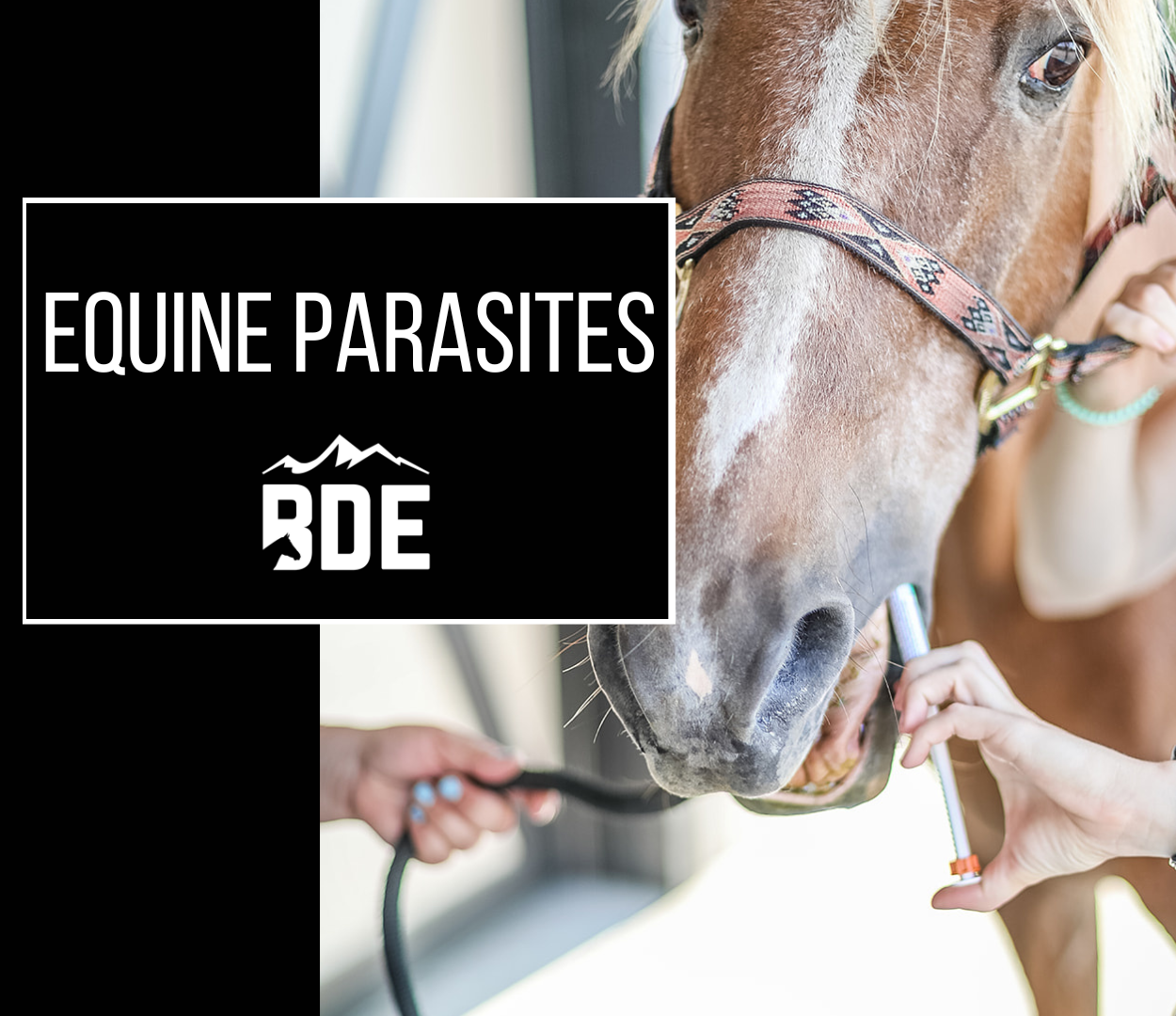Equine Parasites
A lot has changed in the way that we manage equine parasites and deworm horses in the last 30 years. Prior to the invention of conventional paste dewormers, horses suffered from high parasite burdens that could cause ill thrift, form impactions of their intestines or even cause blood clots of the gastrointestinal tract arteries and veins. The few medications that were available were administered using a nasogastric tube directly to the stomach and a high dose was given to kill off worms.
Once Ivermectin came on the market for veterinary use in the late 1970’s the way we dewormed horses changed forever. Ivermectin is a powerful drug against the most sinister of the equine parasites and helped significantly reduce mortality rates from parasitism. Since that time a plethora of new deworming drugs have come on the market. Horse owners and Veterinarians began administering dewormers every 2-3 months and rotating the medication used at each interval. This “rotational deworming” practice was studied and evidence has shown this was beginning to selectively breed for parasites that are resistant to our worming medications. More modern deworming tactics have been aimed at improving equine health while not breeding resistance in our parasite population. More research coupled with more effective deworming medications has allowed us to tailor our deworming protocols to optimally treat each individual horse.
As a general rule for most adult horses the American Association of Equine Practitioners (AAEP) recommends twice annual worming (Spring and Fall) specifically to reduce the burden of strongyles in horses. However, with additional information and diagnostic tests we are able to closely tailor this strategy to each individual horse and life stage.
Fecal Egg Counts
Fecal egg counts are tests that evaluate manure samples to identify which parasites are currently shedding eggs.
Fecal egg counts are used to identify which horses on a property are considered "high shedders" and are contaminating the environment. These horses may require additional dewormers throughout the year to keep their shedding down and reduce the parasite burden on the property.
The best time to perform an annual fecal is mid summer so that additional deworming can occur as needed for those individuals that are continuing to contaminate the environment. New horses coming into a herd should have a fecal performed prior to being introduced and should then be dewormed with the appropriate dewormer as indicated by the species population in the sample.
The ultimate goal is to reduce the number of total deworming events per year to only twice annually and save additional deworming for those individuals who truly need it.
A frequent misconception of Fecal egg counts is that if the fecal comes back negative (count of 0 eggs per gram) that no parasites are present within the horse. The fecal egg count can only detect parasites that are mature and actively shedding eggs. In addition, some parasites do not shed eggs in manure (such as bots and pinworms) and cannot be identified by this method. Even horses who test with a fecal egg count of zero eggs per gram should be wormed twice annually to protect them from parasites that are not shedding or not detectable in manure.
Parasite Resistance
The major reason we have diverted away from “rotational deworming” of our horses has been the emergence of parasites that are resistant to our typical wormers.
These parasites are identified using a Fecal Egg Count Reduction Test (FECRT).
To perform this test a fecal is initially submitted. The results of this fecal are used to choose an appropriate dewormer for the individual horse. A second fecal should be submitted 14 days after the dewormer is administered and a calculation will be performed based on these results to determine if resistance is present. If a certain % of eggs are still being shed in this second sample, resistance has been identified and a different deworming agent should be selected.
Deworming Young Horses
Foals require specialized deworming programs because they are particularly susceptible to parasites during the first two years of life.
Foals are more prone to ascarid infestations - roundworms can become so numerous within the gastrointestinal tract that they cause a blockage. This blockage can be life threatening and may require surgery to be removed.
Foals should start being dewormed around 3 months of age with a Fenbendazole product and dewormers should be administered 3-4 times per year during the first two years of life. One of these dewormers should include an ivermectin product.
An appropriate deworming strategy for a foal would look like the following:
3 months old: Administer a fenbendazole dewormer - this targets ascarids
6 months old: Bring in a fecal sample for testing. This test will determine if another fenbendazole product should be used to deworm or if an ivermectin product should be used
9 months old: Administer a fenbendazole dewormer
Yearling: Please deworm three times this year - one per quarter of the year. Bring in a fecal sample at 1 year of age.
1. Fenbendazole
2. Fenbendazole
3. Fenbendazole
4. Ivermectin + Praziquantel
2+ years and up: Ivermectin in the fall and Quest Plus in the spring. Submit a fecal egg count once annually before deworming to screen for Ascarids.
The American Association of Equine Practitioners (AAEP) recommends that fecal egg counts are submitted at 6 months of age, 1 year of age and annually after 2 years of age to look for the presence of ascarids or other parasites of concern.
Using our knowledge of equine life stages and risk factors for parasites we can create parasite programs for individual horses. If you would like help creating a parasite control program for your horse or barn, a consultation can be booked to evaluate the populations on the property and implement a structured program.




